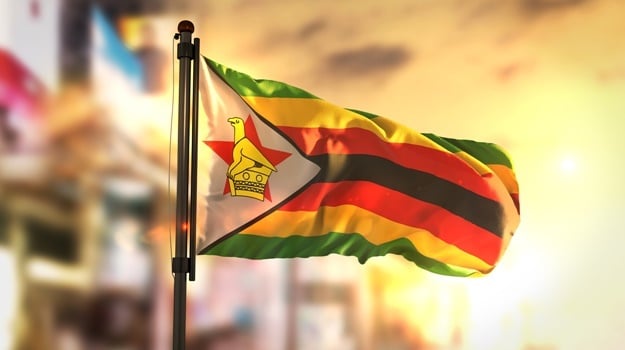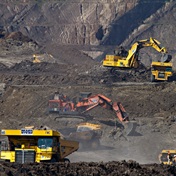
There are big plans for two mining interests in Zimbabwe; GDI and Kuvimba.
David Brown’s association with Zimbabwe’s mining sector dates to his six years as CEO of Impala Platinum (Implats), which ended in 2012. During that time, he met with then president Robert Mugabe to end a dispute between the government and Implats regarding certain mineral rights.
Brown is now back in the country as non- executive chairman of Great Dyke Investments (GDI), a company backed by private Russian interests that is hoping to raise $550m for a platinum group metals (PGM) mine, Darwendale.
Mnangagwa’s hope is that companies like Kuvimba
can breathe life back into the
country’s crisis-hit economy.
Mnangagwa hasn’t many
economic levers to pull, but
mining is one of them. “I could
have sat at home, but I like the
opportunity of Zimbabwe,” says
Brown in an interview. “I like
the people and I’m still young
enough to do this,” he says.
Brown is 58 years old.
Last year he announced his resignation from MC Mining, a JSE-listed thermal and metallurgical coal miner after seven years at the company. During his time at MC Mining, Brown restructured the company ahead of a capital raising programme, some of which was achieved. But it’s extremely tough going for coal companies given the way attitudes have changed towards old-world fuel.
That isn’t the case for either gold or platinum, the prices of which are riding the crest of a wave.
Kuvimba has several streams of investment. The first is gold production from mines previously owned by Metallon Corporation, a company that went bust under its owner, Mzi Khumalo,a former Robben Islander. These mines, and a second stream of investment – Bindura Nickel Corporation (BNC) – were bought by the Zimbabwean government from Russian firm Sotic Investments.
Sotic, which operates through the Cayman Islands firm Almas Global Opportunity Fund, exited the gold and nickel assets to focus on Darwendale. There is, then, no Russian presence in Kuvimba, which was created in joint venture with Brown’s Mauritius-registered firm Quorus Management Services. But Kuvimba does have a stake in GDI, which is its third stream of investment.
The outcome is that the Zimbabwean government owns 65% of Kuvimba whilst Quorus owns the balance. Zimbabwean businessman Simba Chinyemba is a 50% co-investor with Brown in Quorus. Kudakwashe Tagwirei, an advisor to Mnangagwa, is also not invested in Kuvimba as previously speculated. “He is absolutely not connected with us,” says Brown.
Brown is looking for other partners to join him in Quorus to help resuscitate the Zimbabwean gold mines, the best-known of which is Freda Rebecca, as well as Shamva and Jenna. The plan is to take production to about 150 000 ounces a year from the current 90 000 oz today. But that will require some $150m worth of new investment, says Brown.
As for BNC, it’s producing about 6 000 tonnes of nickel a year, a mineral that has found new life as an element used in the manufacture of electric car batteries.
But the big ticket is going to be Darwendale, the PGM mine.
“That’s quite chunky money,” says Brown of the capital required to build a forecast 300 000 ounces in PGM concentrate annually in its first phase. This doesn’t include construction of a refinery which requires significant additional capital. The likelihood is that GDI will reach out to an existing PGM producer, such as Brown’s old employer Implats, which already has refining capacity in Zimbabwe.
The hope was to have raised the debt for Darwendale by the end of last year, but Brown says Covid-19 has played havoc with time-tabling. “Lenders like to get out to site visits, but Covid-19 has made it incredibly difficult ... But we’ve got sufficient funding at present,” he says.




 Publications
Publications
 Partners
Partners













